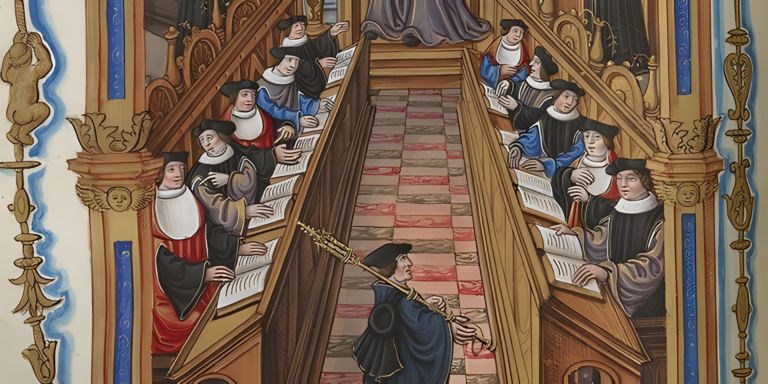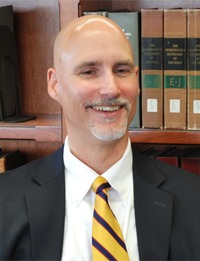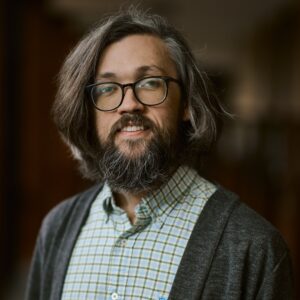
Why you should change your mind about Reformed Scholasticism
Dr. R. Scott Clark (DPhil Oxford University) is a historical theologian who has taught at Wheaton College, Reformed Theological Seminary, Jackson, Concordia University, Irvine, and Westminster Seminary California. He is the author of several books including Recovering the Reformed Confession: Our Theology, Piety, and Practice and Caspar Olevian and the Substance of the Covenant: The Double Benefit of Christ. Additionally, he and Carl Trueman co-edited Protestant Scholasticism: Essays in Reassessment. In this interview with Credo’s executive editor Timothy Gatewood, Clark discusses the Reformed scholastics, the benefit they offer the modern church, as well as help to correct some popular misconceptions about the Reformed tradition.
___________________________________________________________________________________
Who are the Reformed Scholastics? Is there any difference between the Reformed Scholastics and the Reformed Orthodox?
Strictly speaking, the Reformed scholastics were academic theologians, i.e., those who taught theology in the classroom and who wrote theology in an academic context. Reformed orthodoxy is a broader category, which includes the academic theologians but also includes those who had been educated in a theology faculty or who were influenced by academic theologians. The line between them can be fuzzy since many of the theologians were also preachers and moved between the academy and the church or continued preaching while they were also lecturing in a university or a theological school.
Scholarship concerning the Reformation and the Reformed scholastics has grown significantly over the last few decades. What is one area of research, whether an author or a particularly Reformed idea, that still needs to be retrieved?
We have a reasonably good idea of the systematic theology and even the covenant theology of most of the major figures in Reformed orthodoxy but we do not have a sufficiently clear picture of their use of Scripture. Because only a tiny fraction of their biblical commentaries and biblical studies monographs we have an incomplete picture of how closely and carefully they worked with Scripture.
How would you describe the relationship between the Reformers and the Reformed Scholastics? Is there continuity between the medieval scholastics, the Reformers, and the Reformed Scholastics?
I like to speak of the magisterial Protestants (e.g., Luther, Melanchthon, Zwingli, Bucer, and Calvin) and their orthodox successors. There were areas of strong continuity and areas of development. The Reformed orthodox saw themselves as carrying on the great achievements of the pioneering Protestant theologians. The Reformed orthodox saw themselves as carrying on the great achievements of the pioneering Protestant theologians. Click To Tweet They spoke and thought of Calvin and Luther as “our” theologians. It was a Reformed orthodox theologian, J. H. Alsted, who, in 1618, called the doctrine of justification “the article of the standing or falling of the church.” The orthodox stoutly defended sola Scriptura and salvation sola gratia. By the early 17th century, however, the Reformed orthodox faced a much more sophisticated critique of the Reformation from Roman Catholic scholars. In turn they had to engage more carefully and fully with the fathers and the great medieval scholastic theologians than the magisterial theologians were able to do. They had to answer questions that were not faced by the sixteenth-century Protestants and by the middle of the century they were also facing the early stages of the Enlightenment, which posed challenges that the earlier Reformers did not face, at least not in the same way.
The Patristic period and 20th century Evangelicalism may receive their fair share of attention in the typical Christian History course, but students may not receive the same amount of instruction on the medieval or Reformed Scholastics. What does one lose if he overlooks the Reformed scholastics? What is a unique theological contribution made by the Reformed Scholastics that may not be clearly articulated elsewhere?
There are programs where, because of the limited hours allotted to history, faculty are forced to compress church history and the history of theology to the greatest hits. That is unfortunate because those gaps include some of the most important periods, arguments, and events in the history of the church. It is impossible to understand the Reformation without having a reasonably good grasp of the nature and development of the Western church in the millennium preceding it. Against what was Luther rebelling and why? The fruit of inadequate grasp of medieval theology, piety, and practice is all around us. Had the advocates any serious encounter with the Middle Ages they might realize that significant portions of their program are not new at all. The Reformation development of the doctrine of vocation can only be understood against the background of the monastic movements and the rise of sacerdotalism. Without a grasp of the middle ages, the Reformation tends to become caricature and it makes us more susceptible to ill-grounded revisions of the Reformation. Without a grasp of the orthodox successors of the Reformation, for those of us who regard ourselves in that tradition, we lose our vocabulary, significant portions of our theology and piety, and the rationale for our practice. Click To Tweet
Without a grasp of the orthodox successors of the Reformation, for those of us who regard ourselves in that tradition, we lose our vocabulary, significant portions of our theology and piety, and the rationale for our practice. One of the things I learned from reading Richard Muller, who pointed me to Franciscus Junius (1545–1602), was the way the Reformed orthodox gave us fundamental categories for teaching of theology. We know that Calvin and the Reformed distinguished between the Creator and the creature, but Junius gave us a way of applying that to theological method. According to Junius, in this life we do what he called “pilgrim theology.” That is enormously significant. It means that we are not the creators of theology but its recipients. We are not God but his analogs. Had scholars understood this earlier they might have saved a lot of time and ink by over the alleged rationalism of Reformed orthodoxy.
You’ve written a good deal about a lesser-known Reformed Scholastic – Caspar Olevianus. Who is he, how did you discover him, and why has he maintained your interest?
Olevianus still interests me because I keep learning from him. He was a humanist, but he studied Reformed theology just as Reformed orthodoxy was beginning. He worked among a cadre of other Reformed theologians in Heidelberg for fifteen years and then helped to advance the Reformed Reformation beyond the Palatinate. Were he writing today, we might call him a biblical theologian because of his interest in the sweep of the history of redemption but he was also very much a churchly theologian. He wrote the simplest catechism possible, for German farmers and he wrote commentaries on the Apostles Creed and worked for the Reformation of the church in his hometown and elsewhere. He was not a pure academic. He was superintendent of the church in Heidelberg, and he preached regularly but he also wrote biblical commentaries and a large covenant or biblical theology that contains truly profound insights.


